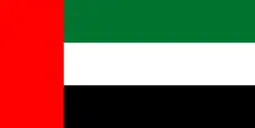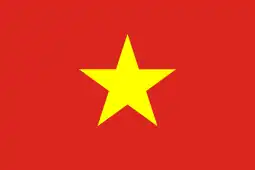The Committee on Earth Observation Satellites (CEOS) is an international organization created in 1984 around the topic of Earth observation satellites. [1] [2] [3] [4] [5]
As of 2023, it has 34 national space agencies as regular members and other 29 associate members.[6] Space agencies that are regular members include those from Argentina, Australia, Brazil, Canada, China, France, Germany, India, Italy, Japan, South Korea, the Netherlands, Russia, South Africa, Spain, Thailand, Turkey, Ukraine, the United Kingdom and the United States.
National space agencies as regular members
 Italy - Agenzia Spaziale Italiana (ASI)
Italy - Agenzia Spaziale Italiana (ASI).svg.png.webp) Canada - Canadian Space Agency (CSA)
Canada - Canadian Space Agency (CSA) France - Centre National d'Etudes Spatiales (CNES)
France - Centre National d'Etudes Spatiales (CNES) Spain - Centro para Desarrollo Tecnólogico Industrial (CDTI)
Spain - Centro para Desarrollo Tecnólogico Industrial (CDTI) China - China Academy of Space Technology (CAST); China Center for Resources Satellite Data and Applications (CRESDA); National Remote Sensing Center of China (NRSCC); National Satellite Meteorological Center/China Meteorological Administration (NSMC/CMA)
China - China Academy of Space Technology (CAST); China Center for Resources Satellite Data and Applications (CRESDA); National Remote Sensing Center of China (NRSCC); National Satellite Meteorological Center/China Meteorological Administration (NSMC/CMA) Argentina - Comisión Nacional de Actividades Espaciales (CONAE)
Argentina - Comisión Nacional de Actividades Espaciales (CONAE).svg.png.webp) Australia - Commonwealth Scientific and Industrial Research Organisation (CSIRO)
Australia - Commonwealth Scientific and Industrial Research Organisation (CSIRO) Germany - Deutsches Zentrum für Luft-und Raumfahrt (DLR); European Organisation for the Exploitation of Meteorological Satellites (EUMETSAT)
Germany - Deutsches Zentrum für Luft-und Raumfahrt (DLR); European Organisation for the Exploitation of Meteorological Satellites (EUMETSAT).svg.png.webp) Belgium - European Commission (EC); European Space Agency (ESA)
Belgium - European Commission (EC); European Space Agency (ESA) India - Indian Space Research Organisation (ISRO)
India - Indian Space Research Organisation (ISRO) Brazil - Instituto Nacional de Pesquisas Espaciais (INPE)
Brazil - Instituto Nacional de Pesquisas Espaciais (INPE) Japan - Japan Aerospace Exploration Agency/Ministry of Education, Culture, Sports, Science, and Technology (JAXA/MEXT)
Japan - Japan Aerospace Exploration Agency/Ministry of Education, Culture, Sports, Science, and Technology (JAXA/MEXT) South Korea - Korea Aerospace Research Institute (KARI); Korea Meteorological Administration (KMA); National Institute of Environmental Research (NIER)
South Korea - Korea Aerospace Research Institute (KARI); Korea Meteorological Administration (KMA); National Institute of Environmental Research (NIER) United States - National Aeronautics & Space Administration (NASA); National Oceanic and Atmospheric Administration (NOAA); United States Geological Survey (USGS)
United States - National Aeronautics & Space Administration (NASA); National Oceanic and Atmospheric Administration (NOAA); United States Geological Survey (USGS) Nigeria - National Space Research and Development Agency (NASRDA)
Nigeria - National Space Research and Development Agency (NASRDA) Netherlands - Netherlands Space Office (NSO)
Netherlands - Netherlands Space Office (NSO) Russia - Roscosmos State Corporation for Space Activities (Roscosmos); Russian Federal Service for Hydrometeorology and Environmental Monitoring (ROSHYDROMET)
Russia - Roscosmos State Corporation for Space Activities (Roscosmos); Russian Federal Service for Hydrometeorology and Environmental Monitoring (ROSHYDROMET) South Africa - South African National Space Agency (SANSA)
South Africa - South African National Space Agency (SANSA) Ukraine - State Space Agency of Ukraine (SSAU)
Ukraine - State Space Agency of Ukraine (SSAU) Turkey - TÜBİTAK Space Technologies Research Institute (TÜBİTAK UZAY)
Turkey - TÜBİTAK Space Technologies Research Institute (TÜBİTAK UZAY) United Arab Emirates - United Arab Emirates Space Agency (UAESA)
United Arab Emirates - United Arab Emirates Space Agency (UAESA) United Kingdom - United Kingdom Space Agency (UKSA)
United Kingdom - United Kingdom Space Agency (UKSA) Vietnam - Vietnam Academy of Science and Technology / Vietnam National Space Center (VAST/VNSC)
Vietnam - Vietnam Academy of Science and Technology / Vietnam National Space Center (VAST/VNSC)
See also
References
- ↑ Jakhu, R.S. (2010). National Regulation of Space Activities. Space Regulations Library. Springer Netherlands. p. 443. ISBN 978-90-481-9008-9. Retrieved 2020-09-13.
- ↑ Sadeh, E. (2010). The Politics of Space: A Survey. Taylor & Francis. p. 238. ISBN 978-1-136-88424-5. Retrieved 2020-09-13.
- ↑ Harris, R. (2002). Earth Observation Data Policy and Europe. Taylor & Francis. p. 7. ISBN 978-90-5809-258-8. Retrieved 2020-09-13.
- ↑ Kramer, H.J. (2013). Observation of the Earth and its Environment: Survey of Missions and Sensors. Springer Berlin Heidelberg. p. 502. ISBN 978-3-662-09038-1. Retrieved 2020-09-13.
- ↑ Sandau, R. (2006). International Study on Cost-Effective Earth Observation Missions. Taylor & Francis. p. 22. ISBN 978-0-415-39136-8. Retrieved 2020-09-13.
- ↑ "Agencies | CEOS | Committee on Earth Observation Satellites". ceos.org. Retrieved 17 September 2020.
Further reading
- CEOS Disaster Management Support Group (2002). CEOS, Committee on Earth Observation Satellites: The Use of Earth Observing Satellites for Hazard Support : Assessments & Scenarios : Final Report of the CEOS Disaster Management Support Group. U.S. Department of Commerce, National Oceanic and Atmospheric Administration. Retrieved 2020-09-13.
External links
This article is issued from Wikipedia. The text is licensed under Creative Commons - Attribution - Sharealike. Additional terms may apply for the media files.